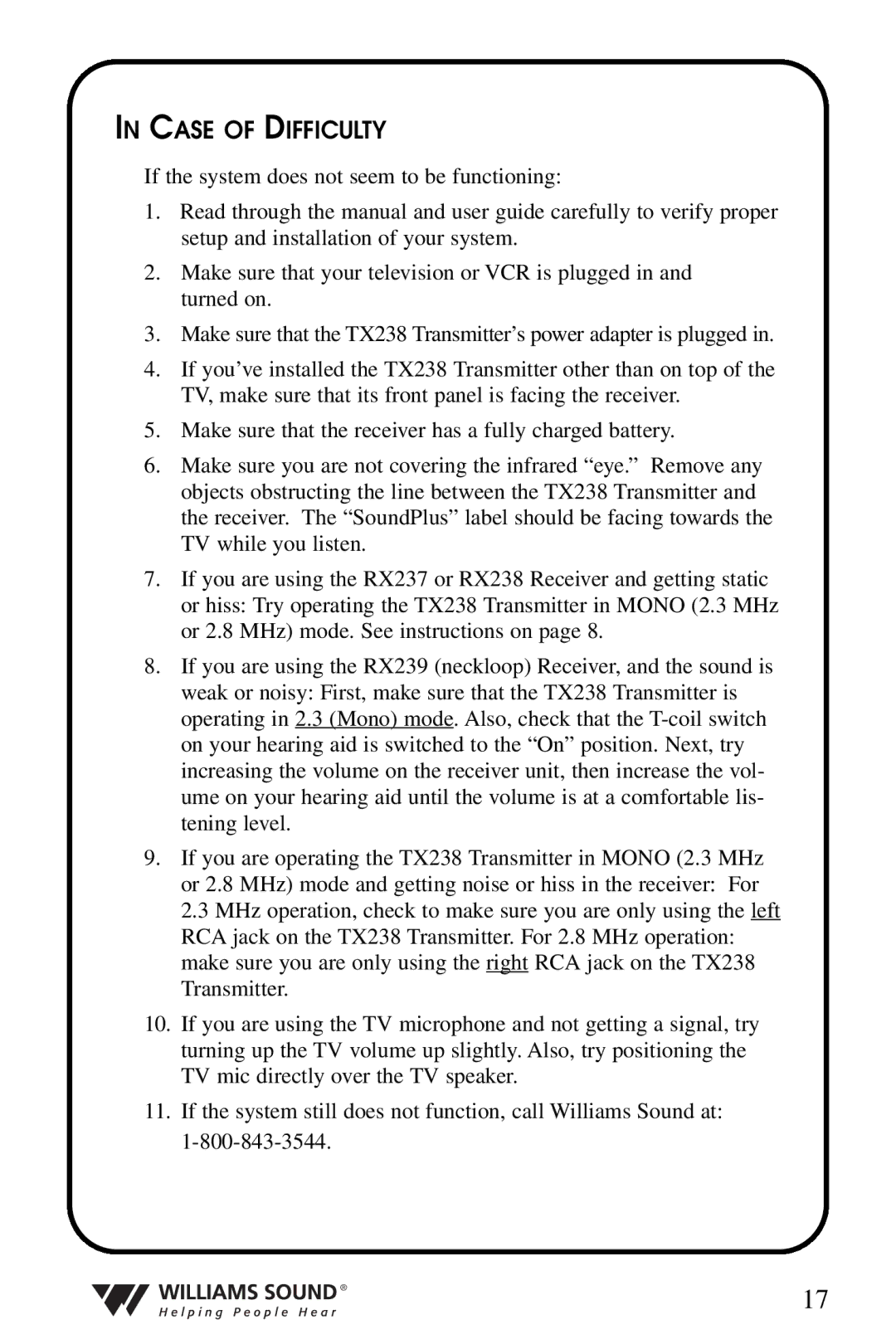
IN CASE OF DIFFICULTY
If the system does not seem to be functioning:
1.Read through the manual and user guide carefully to verify proper setup and installation of your system.
2.Make sure that your television or VCR is plugged in and turned on.
3.Make sure that the TX238 Transmitter’s power adapter is plugged in.
4.If you’ve installed the TX238 Transmitter other than on top of the TV, make sure that its front panel is facing the receiver.
5.Make sure that the receiver has a fully charged battery.
6.Make sure you are not covering the infrared “eye.” Remove any objects obstructing the line between the TX238 Transmitter and the receiver. The “SoundPlus” label should be facing towards the TV while you listen.
7.If you are using the RX237 or RX238 Receiver and getting static or hiss: Try operating the TX238 Transmitter in MONO (2.3 MHz or 2.8 MHz) mode. See instructions on page 8.
8.If you are using the RX239 (neckloop) Receiver, and the sound is weak or noisy: First, make sure that the TX238 Transmitter is operating in 2.3 (Mono) mode. Also, check that the
9.If you are operating the TX238 Transmitter in MONO (2.3 MHz or 2.8 MHz) mode and getting noise or hiss in the receiver: For 2.3 MHz operation, check to make sure you are only using the left RCA jack on the TX238 Transmitter. For 2.8 MHz operation: make sure you are only using the right RCA jack on the TX238 Transmitter.
10.If you are using the TV microphone and not getting a signal, try turning up the TV volume up slightly. Also, try positioning the TV mic directly over the TV speaker.
11.If the system still does not function, call Williams Sound at:
®
17
